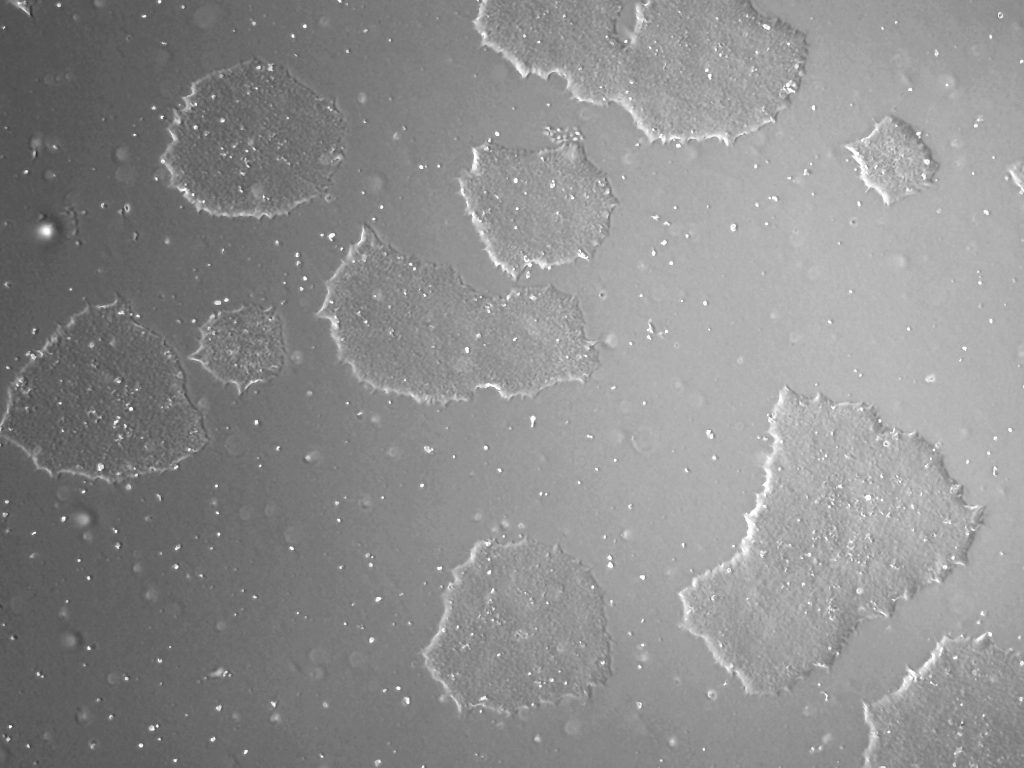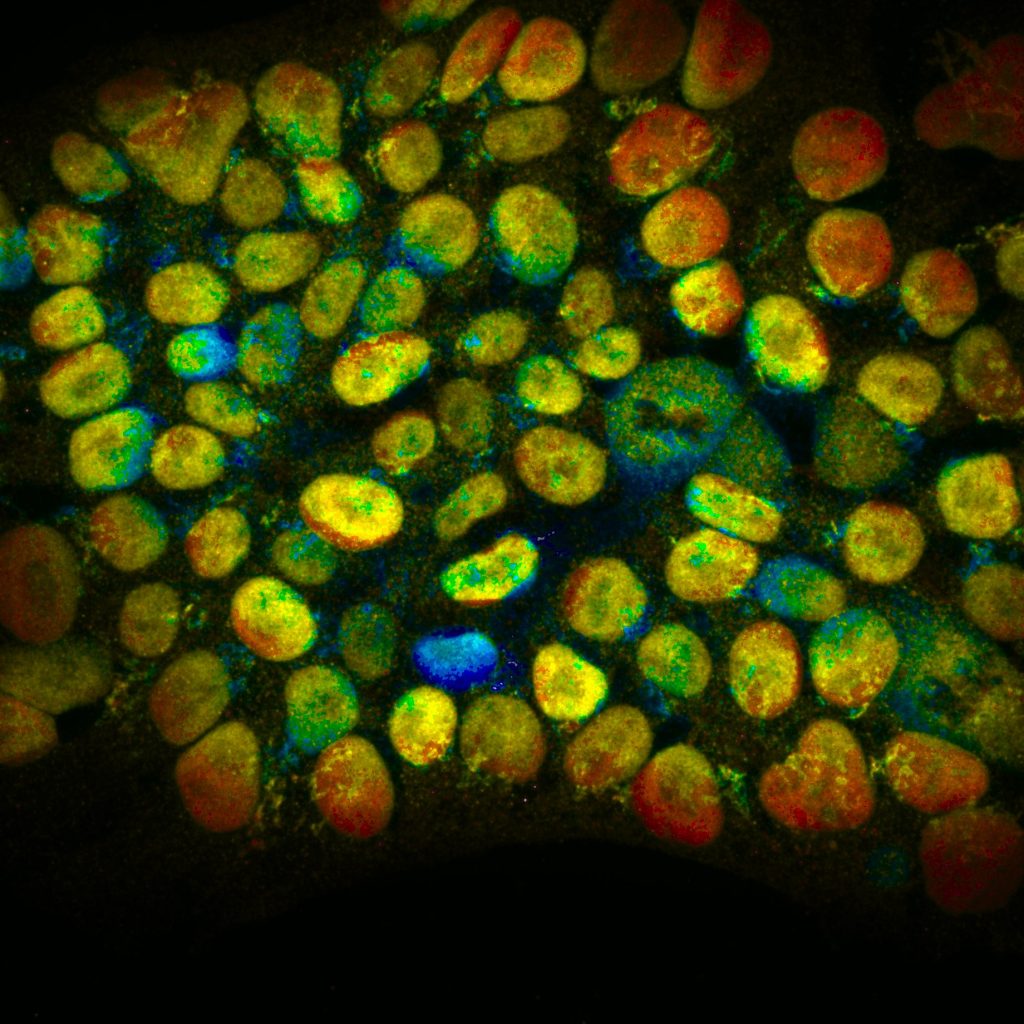Projects

Intercellular Communication in Pluripotency
The composition and interplay of the extracellular factors and membrane receptors of a cell dictate proliferation, differentiation, and cellular integrity. The membrane of a human cell consists of hundreds of proteins, which are rapidly re-organized quantitatively and qualitatively in differentiation. The master organizer of the cell membrane composition is endo- and exocytosis, which dictates the abundance of receptors, and effectors at the cell surface, and in intra/extracellular vesicles. Our aim is to understand intercellular communication of human pluripotent stem cells to elucidate the unique regulation of pluripotency.

Oncogenic Stem Cell Signature
Important aspect of stem cell biology is the emerging
correlation between embryonic development, pluripotent stem cells, adult stem cells, reprogramming, and cancer stem cells. The core pluripotency transcription factors, OCT4, NANOG, and SOX2, and pathways driving pluripotency (Wnt, TGFβ, PI3K-Akt, FGF-Ras) are active in the majority of cancer associated stem cells. In addition, culture-induced genetic abnormalities in human pluripotent stem cells leads to increased malignant potential and expression of oncogenes. Our aim is to understand how cancer associated genetic alterations change the regulation of stem cells.